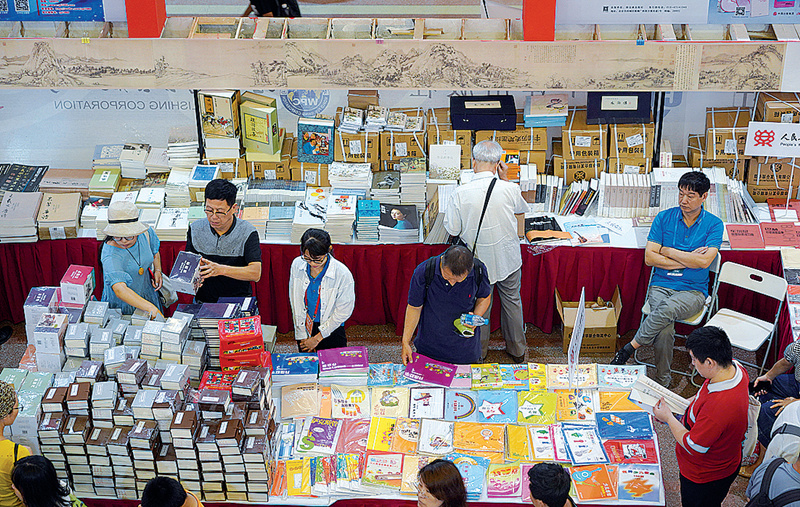 |
|
The 15th Shanghai Book air kicked off on Aug 15 at the Shanghai Exhibition Center as well as 100 other venues across Shanghai. PHOTOS BY GAO ERQIANG / CHINA DAILY |
He noted that the retail industry is currently evolving in this digital age and this would create great challenges and opportunities for bookstores and mall operators. As such, both players need to change their strategies and help one another.
"Each shop has to find its niche market or competitive advantage, create a distinctive brand, and develop a sustainable business model," Liu said.
One example of a bookstore with a distinctive brand is Shanghai-based Da Yin (The Great Hermit). Founded in 2016 in the historical Normandie Apartments, the bookstore franchise is easily distinguished by its decor which features Chinese aesthetics.
Like what Liu mentioned, Da Yin has become more than just a place where people buy books. The brand also regularly holds events promoting Chinese culture such as bamboo art and flower arrangement courses as well as and Guqin concerts. In 2017, Da Yin hosted 350 events across its bookshops. It also took 400 events to other corporations and institutions that were attended by almost 400,000 people.
He Xuan, general manager of Da Yin, said during the forum that the brand's activities have proven to be popular with consumers and have created a new revenue stream apart from just book sales.
Da Yin currently operates eight stores in China, with another scheduled to open in Chengdu of Sichuan province by the end of this year.
"Landlords of the first four Da Yin bookstores are all State-owned cultural institutions, and we have shouldered the mission and responsibilities of serving the public, and hosting public cultural events," said He.
According to Huang Yuning, an editor at Shanghai Translation Publishing House, though the majority of books today can be bought online on sites such as JD and Dangdang.com, it is still important for titles to be displayed in brick-and-mortar bookstores. Employees at publishers are also taking on new roles in the evolving industry.
"We editors used to stay behind the curtain, but it is now important to interact with readers. Sharing our experience of working with books has brought new readers and created greater public interest," she said.
The reception of the Shanghai Book Fair has also shown that consumers aren't just looking for the convenience of buying a book online. Despite the sweltering heat and the occasional rainfall brought by the tropical storm Rumbia during the Shanghai Book Fair, the Shanghai Exhibition Center — it was the main venue for the event — was always packed.
One of the main reasons why people attend book events is the chance to meet their favorite authors.
"I fell in love with Mr Ye Xin's books 20 years ago. Now, he has created a new book about Shanghai, which is our shared home city, and I don't want to miss it," said Wang Zhiqin at the launch of the author's new book The Biography of Shanghai on Aug 17. Wang had also brought with him a few copies of Ye's previous novels so that the author could autograph on them.
Zhu Yu, a 31-year-old white collar worker, pointed out that brick-and-mortar bookstores and events like the book fair provide consumers with a very different experience from online shopping.
"You have to search for specific book titles online, but here at the book fair, you get to discover interesting books and authors you've never come across before," she said.
Zhu also said that physical books offer a tactile experience that e-books can never replicate.
"The physical contact with books has helped me to appreciate the book bindings and graphic designs. This is an experience you can never get from reading a book on Kindle or other digital devices," she added.